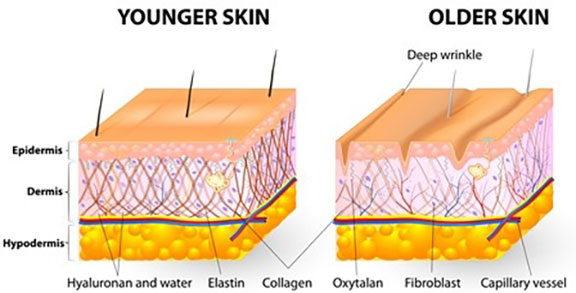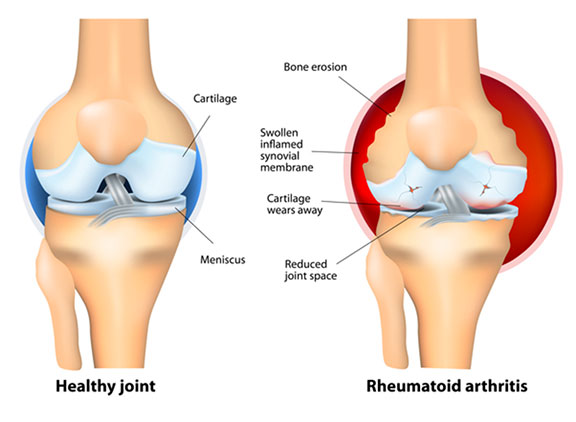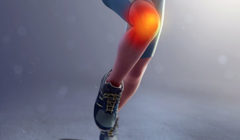Joint Juice Anyone?
For once I am writing about something non controversial … or at least less controversial than arguing about statin drugs, proton pump inhibitors, calcium supplements, dairy and vaccines.
This months article is about a supplement that could help you look and feel younger but presents no danger of overdose … that product is collagen.
Collagen comes from the greek word for glue … kolia … There are twenty eight different types of collagen and this protein is found throughout the body in the bones, skin, teeth, joints and blood vessels. -Most of this is type one collagen, type two is in the cartilage … type three is the mesh around your intestines etc. … type four is found in your respiratory tract … and type five collagen is found in hair and cell surfaces.

Starting as young as 20 you start to lose collagen as you age.
Now the problem with collagen is that we lose it over time. Starting as young as 20 you start to lose collagen as you age. You can supplement with collagen and maybe offset some of this natural loss. We get collagen from chicken, bone marrow, fish skin, the hides of animals, etc. Remember you need the vitamin C to use collagen properly so if you are going to supplement with collagen you should be taking vitamin C as well. Also you need acid in your stomach. So if you are taking a ppi (like Nexium or Prilosec) —which you know I think you should not be taking chronically— if you are taking this class of drug the collagen will not be absorbed. Collagen needs to be taken on an empty stomach for best absorption.
Collagen is rebuilt on a constant basis in your body. Collagen is broken down into fragments which contact collagen production cells and stimulates production of more collagen. Starting in your twenties the stimulation of production slows down. This low collagen production may affect skin and joints. The collagen supplements serve not to replace the collagen in your body but to stimulate collagen production. Collagen has a typical amino acid protein configuration which is hydrolyzed in processing which makes the protein fragments shorter and easier to digest.
What is collagen supplementation good for? Well it’s clearly good for your skin … biopsy proven research has shown that collagen supplementation improves markers of aging in the skin. There have been lots of independent studies looking at this and the results show consistent improvement in skin parameters
But that’s not all … multiple studies show that collagen —specifically type 2 collagen that’s found in cartilage tissues— has been shown to decrease the pain of arthritis especially in the knees and in one recent study appearing in the international journal of medical sciences, “four out of five osteoarthritis sufferers who took a daily 40 mg oral dose of undenatured type-ii collagen (“uc-ii”) experienced less pain, and their pain dropped by an average e of 26%.”

Low collagen production may affect skin and joints, and certain supplements can possibly reduce the risk of joint deterioration
Even as far back as 2006 a study done in athletes came to this conclusion: “This was the first clinical trial of 24-weeks duration to show improvement of joint pain in athletes who were treated with the dietary supplement collagen hydrolysate. The results of this study have implications for the use of collagen hydrolysate to support joint health and possibly reduce the risk of joint deterioration in a high-risk group. Despite the study’s size and limitations, the results suggest that athletes consuming collagen hydrolysate can reduce parameters (such as pain) that have a negative impact on athletic performance.”
Collagen is also important for your gut health. -It contains lots of glycine and glutamine … similar to levels find in bone broth. Both of these proteins support the good bugs in your gut.
The only downside to collagen supplementation is that depending on the source the supplement may contain too much calcium but this is something a routine blood test can check out for you.
So, if you want to improve your skin try collagen types 1 and 3 which are usually found together. If you want to ease your joints you want collagen type 2. The nice thing about this supplement is you should notice the benefit within a month. Why not give it a try and see for yourself.
Until next month … get well … stay well.
J T Barry MD











